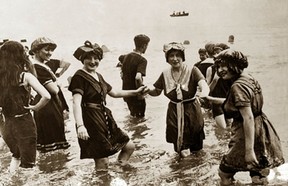 The Edwardian period is often viewed as an idyllic time, especially in Britain. Queen Victoria had died, taking a whole era of prudish values and rigid social etiquette with her.
The Edwardian period is often viewed as an idyllic time, especially in Britain. Queen Victoria had died, taking a whole era of prudish values and rigid social etiquette with her.
Her son Edward VII had also passed on, but his son George hadn't yet made his mark as monarch. Everyone still considered themselves to be Edwardian; and it was a time of decadence.
The gold standard and the Empire had made the country rich. Female skirts rose an inch, in order to show ankles. Revolution was in the air, but that didn't yet seem threatening to the social order. It merely involved women silly enough to think they could vote.
Industry was powering on, with the Titanic the very epitome of that. A vast, glorious, unsinkable ocean liner, that sailed as a symbol of Britain's might. British ingenuity had designed that. It had been built in the United Kingdom using craftspeople from all four countries.
The pride in which she sailed was immense. Britannia well and truly did rule the waves.
But then she sank. The shockwaves didn't just start and end in the vicinity of the wreck, but back at home too. The whole world had witnessed that engineering shame, which probably did contribute to how well it was remembered too. Given what happened next, Britain probably never did get over it.
Within two years, the Great War was raging and the halcyon days were over. The gold standard was lost to the American dollar. Thousands perished in a senseless war; followed by the deadly Spanish flu epidemic of 1918, which awaited the survivors.
Austerity led only to the Great Depression, which in turn segued into the Second World War, the Blitz and the loss of the British Empire. All within thirty years of the Titanic sinking.
Why does the Titanic disaster have such a powerful hold on the British imagination? It's because it's been picked over, time and again, like a scab. It was the ultimate symbol of Edwardian ease; a nostalgic memory for those who recalled Britain in its golden age.
It was the moment when it all started to go wrong. Britain, like Titanic, had once been brilliant; and now they were both an almighty shipwreck.


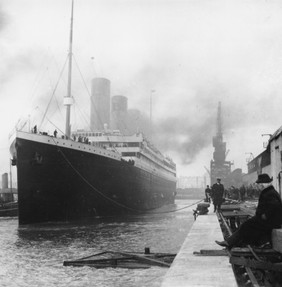 April 15th 2012 marks a century since one of the most famous disasters in modern history.
April 15th 2012 marks a century since one of the most famous disasters in modern history.
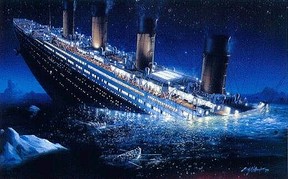 Authors and film-makers are forever searching for the perfect story.
Authors and film-makers are forever searching for the perfect story.


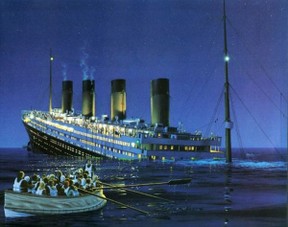 There's a strange psychology, which keeps human beings gripped on the testimonies of disasters.
There's a strange psychology, which keeps human beings gripped on the testimonies of disasters.









 The Edwardian period is often viewed as an idyllic time, especially in Britain. Queen Victoria had died, taking a whole era of prudish values and rigid social etiquette with her.
The Edwardian period is often viewed as an idyllic time, especially in Britain. Queen Victoria had died, taking a whole era of prudish values and rigid social etiquette with her.
 Twenty-nine days after the Titanic sank, the first film was released telling its story. The American Film Industry was in its infancy, but they had the perfect star for the silent movie.
Twenty-nine days after the Titanic sank, the first film was released telling its story. The American Film Industry was in its infancy, but they had the perfect star for the silent movie.


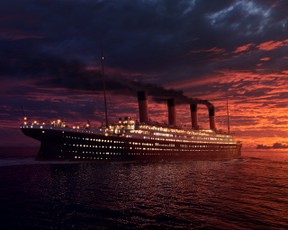 I haven't even scratched the surface of all of the stories that can be told about Titanic.
I haven't even scratched the surface of all of the stories that can be told about Titanic. 








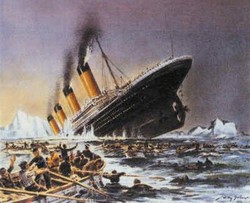

 St Tydecho's Churches in West Waleson 09/03/2014
St Tydecho's Churches in West Waleson 09/03/2014
 Goodies for an Outlander Premiere Partyon 03/06/2015
Goodies for an Outlander Premiere Partyon 03/06/2015
 Holocaust Memorial Day Interview with Rainer Höss, Grandson of Rudolf Architect of Auschwitzon 01/24/2015
Holocaust Memorial Day Interview with Rainer Höss, Grandson of Rudolf Architect of Auschwitzon 01/24/2015
 Romantic Valentine Gifts for an Outlander Fanon 01/16/2015
Romantic Valentine Gifts for an Outlander Fanon 01/16/2015

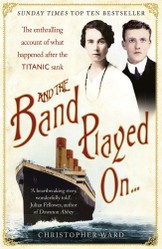
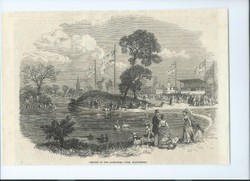
Comments
I'm glad that you liked the article. I agree that the story never gets old.
I'm off to Liverpool tomorrow, as it's one of the Titanic cities. I'll be looking at the exhibition there in the Maritime Museum on the Albert Dock. There are so many artefacts and the like recovered from the ship itself. Sunday is the 100th anniversary, so there will be a lot going on up there.
You covered so much here and did it so well. The story of the Titanic never gets old and it's always fascinating.
I'm glad that you liked it (and thank you as well for your commendation on the Wizzley forum).
They are both fascinating stories; and both ended up with people under the waves. Atlantis is looking much less like a myth now that the remains of an ancient civilization have been found in a destroyed island north of Crete.
I have always been fascinated by two stories --the Titanic and Atlantis. One is true, one may be a myth but my fascination is still there. I enjoyed your article immensely.
I know! As soon as someone finally gives me that time machine, I'm going back and fetching them off!
Thank you very much. <3
Glad to hear it, Sheri! As an historian, I'm fascinated by the whole timing of this. Had it gone down a decade earlier or later, then we probably wouldn't be talking about it today. At least in the way that we are. It chose the perfect historical moment to sink.
This is brilliant!!! I learned so much here and you had me enthralled at every sentence.
Thank you very much! *takes a bow* I've just added in a link to your excellent Wizzle on Frank Millet too.
Great article on very interesting subject. Hundred years passed and it is still one of the most famous stories. And now we have Titanic in 3D. Who would imagine that. :)
You did excellent job here with this 100th article of yours! Congrats!